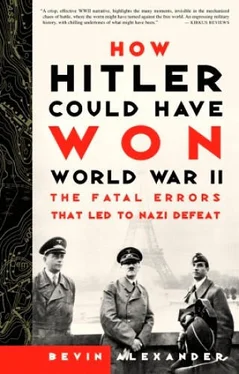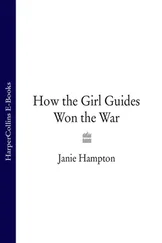Sealing the Strait of Gibraltar would force the British to abandon Malta, because they could not supply it.
With the Royal Navy out of the Mediterranean, it would become an Axis lake. This would permit German forces to occupy all of western Africa, including the French base at Dakar in Senegal. Aircraft, ships, and submarines from Dakar could close down much of Britain’s convoy traffic through the South Atlantic, even without seizure of the Cape Verde islands.
In the Middle East the strategic payoff would be much greater. German forces in Iran would block that country as a route for supplies to the Soviet Union from Britain and the United States. Russia would be left with only the ports of Murmansk on the Barents Sea and Archangel on the White Sea through which goods from the west could be funneled. This would require dangerous passages in atrocious weather, with constant danger of attacks by German ships and aircraft stationed in Norway.
Even more important, the Soviet Union’s major oil fields were in the Caucasus and along the western shore of the Caspian Sea, just north of Iran. Germany could threaten not only an attack directly from Poland and Romania in the west but also from the south through the Caucasus to the Soviet oil fields. This danger of envelopment and quick loss of oil would immobilize Stalin, and obligate him to provide Germany with whatever grain and raw materials it might need. In other words, Germany—without loss of a single soldier—would have the benefits of the Soviet Union’s vast materials storehouse, as well as delivery of tin, rubber, and other goods from Southeast Asia by way of the Trans-Siberian Railway.
A German position in Iran would also pose a huge threat to British control of India, which was agitating for independence under Mohandas K. Gandhi and other leaders. From Iran Germany could reach India through the Khyber and other passes, invasion routes used long before and long after Alexander the Great made the passage in 326 B.C. Germany would not actually have to do a thing. The threat alone would force Britain to commit every possible soldier to defend its crown jewel. Germany, again without the expenditure of a single man, could immobilize Britain.
In possession of the Middle East, all of North and West Africa, and Europe west of Russia, its armed forces virtually intact, its economy able to exploit the resources of three continents, Germany would be virtually invincible. Britain’s defiance on the periphery of Europe would become increasingly irrelevant. Germany would not have to inaugurate an all-out U-boat war against its shipping. Britain’s remaining strength would have to be expended in protecting its empire and the convoys to and from the home islands.
The United States would have no hope of launching an invasion of mainland Europe against an undefeated and waiting German army until it had spent years building a vast navy, army, and air force, not to speak of the transports, landing craft, vehicles, and weapons necessary for such a giant undertaking. It is possible that the United States would take on this task, but the chances for its success would be extremely small. Far more likely, the American people would turn first to counter the expansion of Japan in the Pacific.
Meanwhile Germany could consolidate its empire, bring subject nations into an economic union, and grow more powerful economically, militarily, and politically every day. Before long, the world would become accustomed to the new German Empire and insist on a return to normal international trade.
This at last would give Hitler the opportunity he had dreamed of since the 1920s—seizure of all the Soviet Union west of the Urals. Once a de facto cease-fire had been achieved, Hitler could strike at European Russia from south and west, drive Stalin and the surviving Soviets into Siberia, and get the Lebensraum he coveted.
In the weeks that followed Raeder’s proposal Hitler appeared to be less firmly fixed on war in the east, at least in regard to timing, and looked on the navy commander’s proposals favorably. Senior German officers began to hope for a change in Hitler’s resolve.
Hitler’s ambivalence was based on faith that the Italian offensive into Egypt would have quick success. It had commenced on September 13, 1940, under the command of Marshal Rodolfo Graziani. The Italian army of six divisions was about three times the size of defending British forces. But German fears (and British optimism) began to rise almost at once, as Graziani advanced along the coast with extreme caution against little British resistance. Fifty miles inside Egypt, he stopped at Sidi Barrani, less than halfway to the British position at Mersa Matruh.
Here Graziani established a chain of fortified camps that were too far apart to support one another. Week after week passed with the Italians doing nothing. Meanwhile Wavell received reinforcements, including three armored regiments rushed out on Churchill’s orders from England in three fast merchant ships.
German military leaders had long harbored doubts about the ability of the Italian army to achieve much, and Graziani’s performance fanned these fears. Italian forces had shown only limited interest in war, and had poor or obsolete equipment and few mechanized forces of any kind. However, the German General Staff felt the principal deficiency was not poor weapons, but poor leadership. The Italian officer corps was ill-trained, lived separate from the men, and even had special food. There was little of the easy camaraderie between officers and men that marked the German army, and the high standards and special skills demanded of German officers were little stressed in the Italian military. On the other hand, German generals had great respect for the British army, especially its tenacity.
Consequently, senior German officers offered the panzer corps and aircraft, but Mussolini didn’t respond. He kept hoping Graziani would show some drive, push the British back, and give him and Italy some glory. But it didn’t happen. Even so Mussolini was reluctant to call in the Germans because it would look like an admission of failure. On the other hand, he didn’t want to lose Libya.
With the Italian army sitting at Sidi Barrani in October 1940, the German high command sent a panzer expert, Major General Wilhelm von Thoma, to North Africa to find out whether German forces should help the Italians—and also, unofficially, to look over the Italian army in action (or rather inaction).
Thoma reported back that four German armored divisions could be maintained in Africa and these would be all the force necessary to drive the British out of Egypt and the Suez and open the Middle East to conquest. At the time Germany possessed twenty panzer divisions, none being used.
Hitler called Thoma in to discuss the matter. He told Thoma he could spare only one panzer division, whereupon Thoma replied that it would be better to give up the whole idea. Thoma’s comment angered Hitler. He said his concept of sending German forces to Africa was narrowly political, designed to keep Mussolini from changing sides.
Hitler’s comments to Thoma reveal he didn’t see the road to victory through Suez that Raeder had pointed out to him. If he had, he would have insisted on committing German troops.
Hitler’s interest was focused on keeping Mussolini happy and on wild schemes like assaulting Gibraltar. He had not absorbed Raeder’s strategic insight. His mind remained fixed on Russia. He was hoarding his tanks to use there. That’s why he couldn’t spare more than a single panzer division for Africa.
The denouement in North Africa came swiftly. On December 7, Lieutenant General Sir Richard O’Connor assembled 30,000 British troops with 275 tanks in the Western Desert Force and moved out from Matruh against Sidi Barrani.
Читать дальше


![Джонатан Димблби - Barbarossa - How Hitler Lost the War [calibre]](/books/385421/dzhonatan-dimblbi-barbarossa-how-hitler-lost-the-w-thumb.webp)









